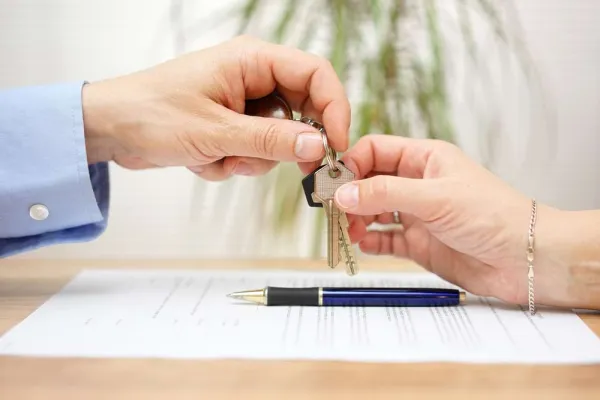Preparing to sell your house can be daunting.
But with the right information, you can follow the correct steps and sell your house quickly and easily.
To help you along, we’ve created a 10-step selling house checklist.
Step 1: Decide if you should sell
People decide to sell their home for many reasons. This will consider your personal and financial circumstances.
Decide where you’ll move to. Has this place been secured, or will you be part of a chain?
Consider your goals for the next few years and how to achieve them best. When buying with someone else, their wishes should be considered, too.
Step 2: Get your property valued
Once you’ve decided to sell, you need your house valued. An independent expert can give you non-biased feedback. Estate agents offer this service for free.
You should gather several different opinions. Remember that estate agents may exaggerate to encourage you to sell with them.
A realistic valuation attracts potential buyers. However, if you get it wrong, it can slow things down considerably.
Step 3: Figure out how to sell
You now need to decide how you’ll sell your property.
An estate agent is the most common route. But you can also use a cash buyer, an auction company, or a private sale to someone you know.
Using an estate agent tends to give you the highest price. Yet, if speed is your top priority, a cash-buying company is often best.
You should also consider the fees involved. Estate agents and auction companies both charge commissions for their services.
Meanwhile, cash-buying companies offer services that are below the typical market rate.
Step 4: Prepare your home for sale
Your house must look great to sell quickly and at a great price.
You must also gather all necessary documents, such as an Energy Performance Certificate (EPC).
First impressions matter, especially in a competitive property market. Clean your house and highlight the best features. Create a blank canvas that your viewers can imagine living in.
Consider renovation if work is needed. When you manage your costs carefully, this could offer a return on investment.
Step 5: Decide your listing price
Setting the right listing price is key. You should’ve already received advice from the experts.
It’s now up to you to make the final decision. Consider the current market trends and sales for similar properties nearby.
Step 6: Hold viewings and accept an offer
Communication is key during this stage. Make sure that you engage with potential buyers and be open to negotiation.
When you receive the offer, check the buyer’s financial position. Also, look for the requested conditions they’ve made and their proposed timeline.
These factors are important, too. It’s not always about whoever offers the most.
Step 7: Hire a conveyancing solicitor
You need professionals by your side to sell your house. And a conveyancing solicitor is arguably the most important.
This expert handles all the paperwork and legal compliance surrounding your sale.
This includes property title checks and reviewing contracts. Transferring funds also applies.
They’ll help you communicate with others in the chain and your estate agent.
Step 8: Exchange contracts
Once the conveyancing process is complete, you must exchange contracts with the buyer.
This point should’ve ironed out any contingencies, repairs, or adjustments.
When you exchange contracts, the sale is binding. You can’t back out without incurring fees.
A date to exchange will be set, usually a few weeks in advance.
Step 9: Complete the sale and move out
Exchanging contracts means that your sale is binding.
There is a short period between exchange and completion. You’ll need to coordinate with others in the chain if you’re buying a house simultaneously.
A removal company should be booked to transfer your belongings from your old home to your new one.
Step 10: Pay any outstanding fees
Completing the sale and moving house means there’s only one step left: pay outstanding fees.
This includes estate agent commissions, solicitor fees and any other expenses.
Once all the outstanding fees are paid, you can use the proceeds however you want.
Congratulations on completing your sale, and good luck – a bright future in your new home awaits!
















